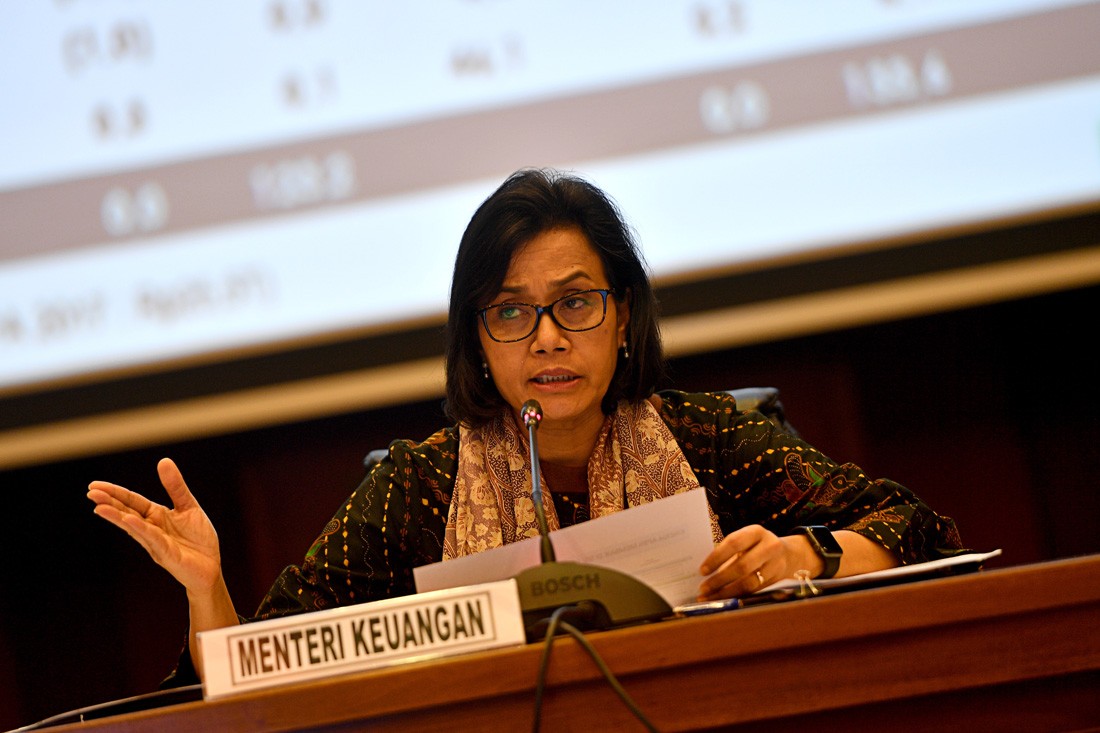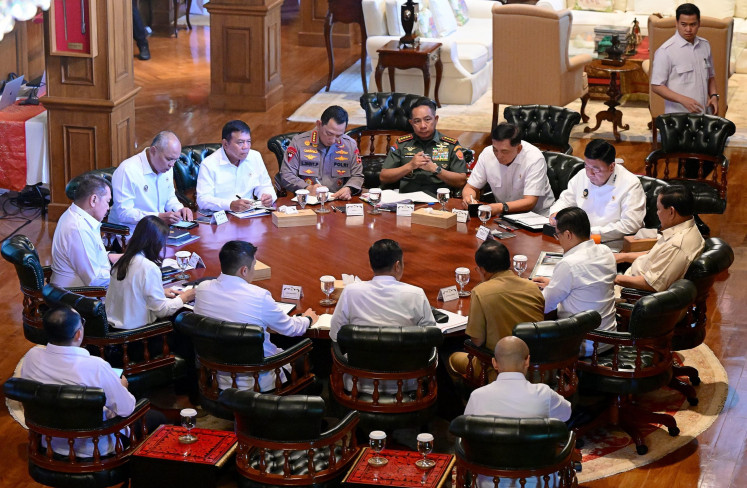Popular Reads
Top Results
Can't find what you're looking for?
View all search resultsPopular Reads
Top Results
Can't find what you're looking for?
View all search resultsBudget credibility on the line
Macroeconomic assumptions have changed significantly.
Change text size
Gift Premium Articles
to Anyone
T
he government’s recent decision not to revise the 2018 state budget, despite major changes to several macroeconomic assumptions, has raised many eyebrows. The move is unusual and unprecedented, and has therefore prompted a question over the budget’s credibility.
The concern is understandable, because macroeconomic assumptions — the basis for calculating both budgetary revenues and expenditures — such as the rupiah exchange rate, oil price reference and oil and gas production estimate, have changed significantly. The rupiah is at Rp 14,400 per United States dollar, high above the Rp 13,400 assumption in the 2018 state budget, while crude oil has soared to US$75 per barrel from the government assumption of $48 per barrel.
Unwanted politicization has been cited as the reason behind the decision to retain the budget as is.
The government fears that any revision would stir political uncertainties, since certain parties, particularly the opposition, would find much-needed ammunition to discredit the government ahead of next April’s presidential election. The opposition has been keen to exploit the swelling foreign debt and reported “invasion” of foreign workers just to fuel public distrust in the government.
Finance Minister Sri Mulyani Indrawati said the 2018 state budget was safe and sound, despite the changes in the macroeconomic assumptions. In supporting her argument, she said the budget deficit had in fact fallen to Rp 110 trillion in the first half from Rp 175 trillion in the same period last year.
But the whole truth is not that glowing. Although the rupiah depreciation and the hikes in crude price have increased state revenues from both tax and non-tax incomes — especially from the oil and gas sector — the government’s ability to service foreign debts and cover energy subsidies has been severely affected. At the current rupiah rate, for example, the government will have to pay an extra Rp 6 trillion to pay maturing debts that reached $5.5 billion in March.
As a result of the weakening rupiah and skyrocketing crude oil prices on the world market, the government will have to increase its budget for energy subsidies. The latest developments also hurt state oil and gas company Pertamina severely, as it must allocate trillions more rupiah to subsidize the low-octane Premium gasoline, as the government has insisted that it will not raise fuel prices for fear that the move would trigger widespread public protests.
While we can understand the reasons for refusing to amend the state budget, which are simply political, we have to remind the government that adhering to such an option would put its and the budget’s credibility on the line. The impacts are overarching and could be potentially devastating. The government may lose the confidence of not only the people, but also investors and international lenders.
To minimize the risks, the government needs to set up a mechanism to provide public access to reliable information on the actual state of the budget. But this still won’t solve the problem, unless spending is cut through a revised budget.










